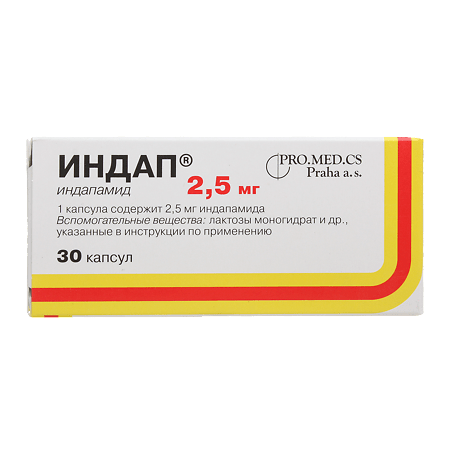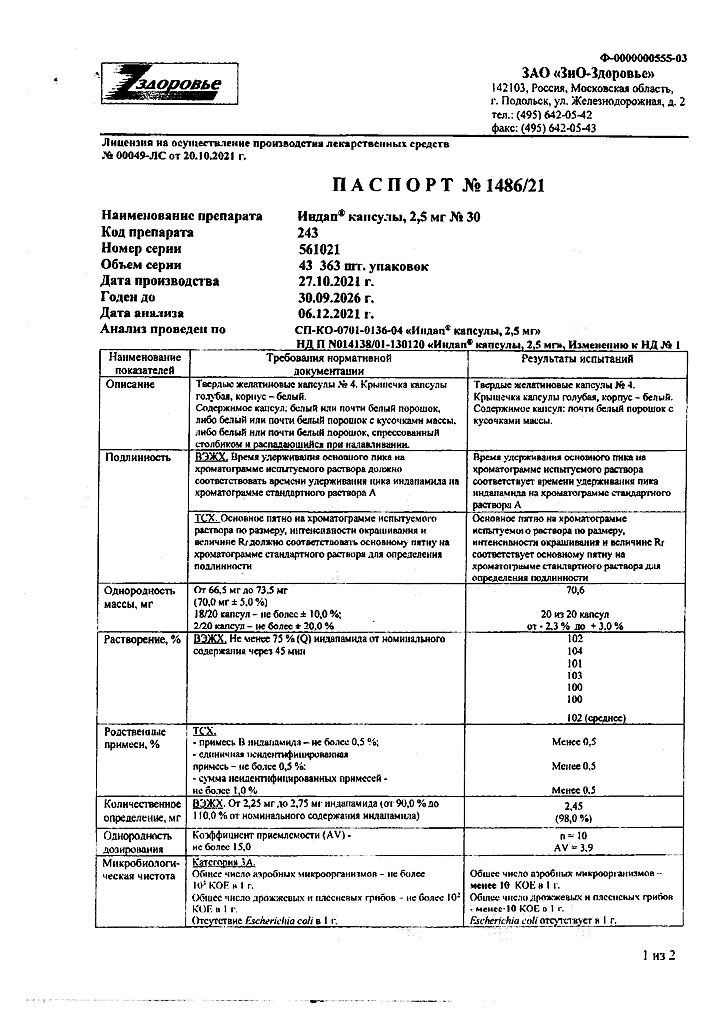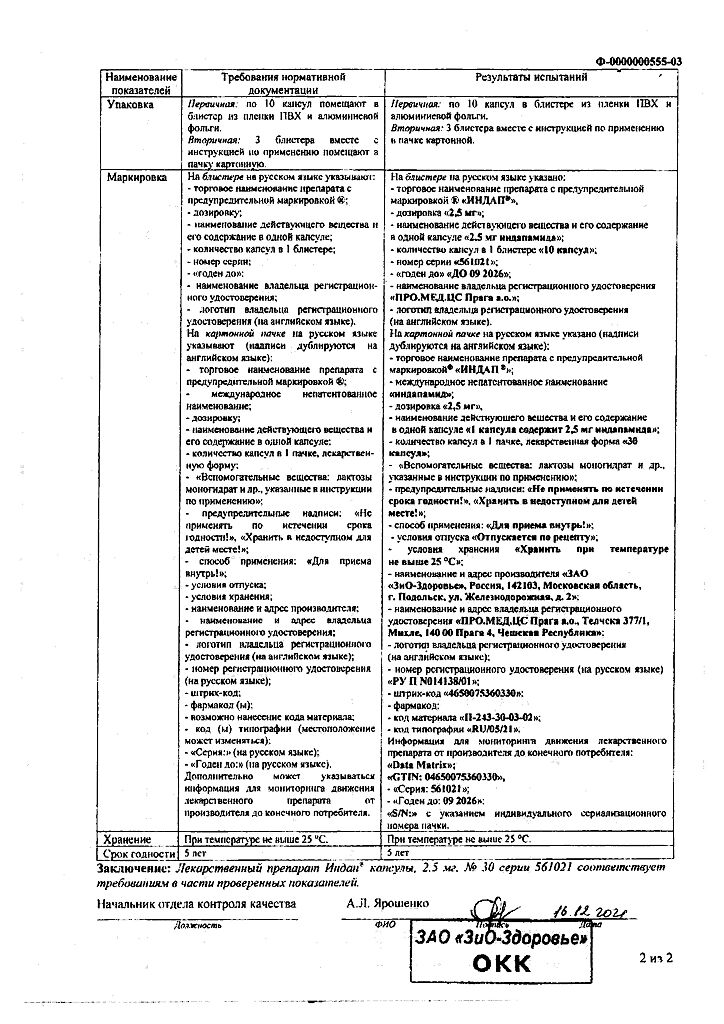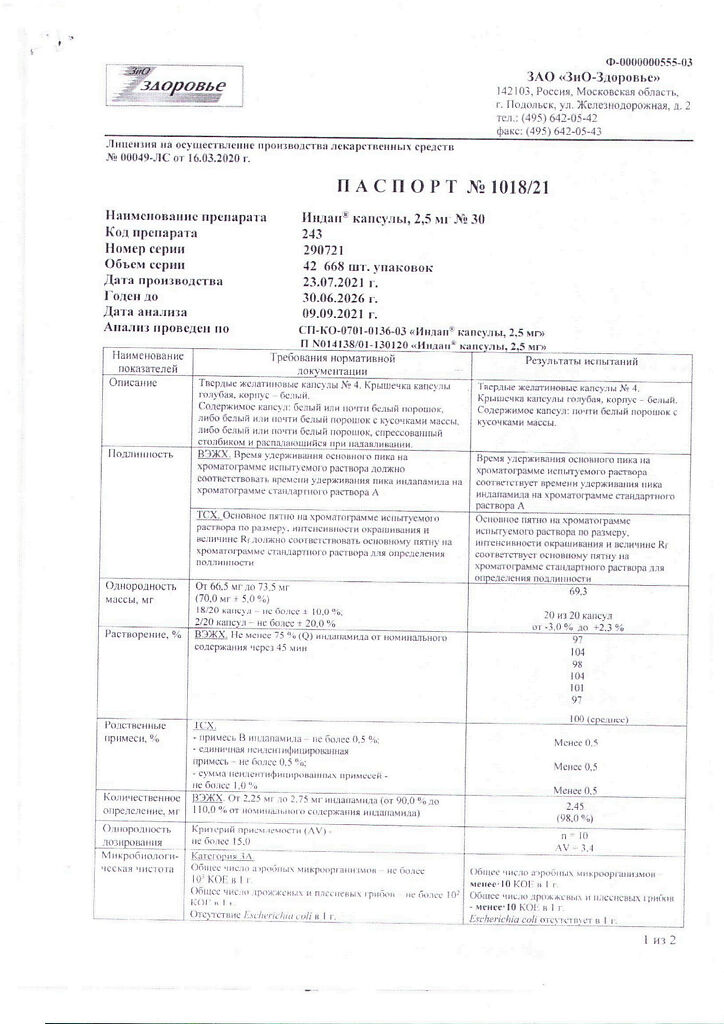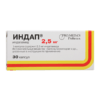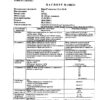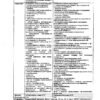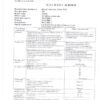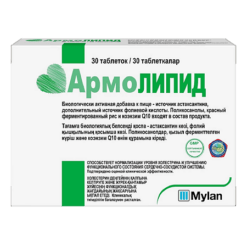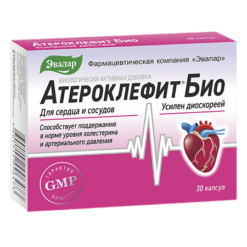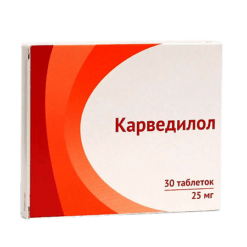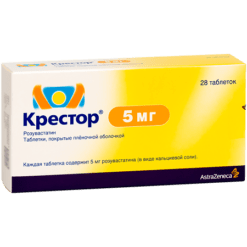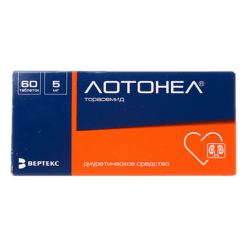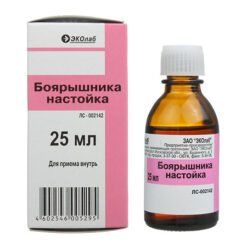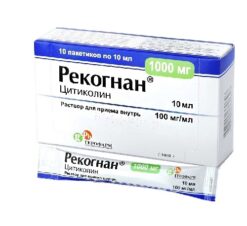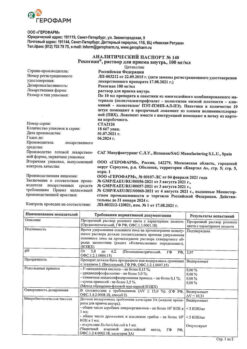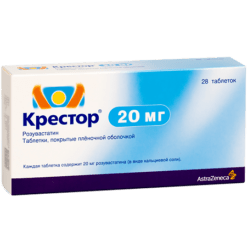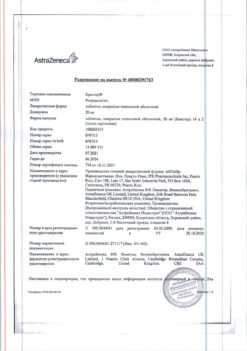No products in the cart.
Indap, capsules 2.5mg 30 pcs
€3.03 €2.53
Description
Indapamide is diuretic, antihypertensive, vasodilator.
Pharmacodynamics
Indapamide belongs to the group of non thiazide sulfonamides, with pharmacological properties similar to thiazide-like diuretics. It reduces the tone of arterial smooth muscle and decreases the RPS. It has moderate saluretic and diuretic effects which are associated with blockade of reabsorption of sodium, chloride, hydrogen and, to a lesser extent, potassium ions in proximal tubules and cortical segment of distal renal tubules. Having the ability to selectively block slow calcium channels, increases the elasticity of arterial walls and reduces ROS. Helps reduce left ventricular hypertrophy. It does not affect plasma lipid content (triglycerides, LDL, HDL), does not affect carbohydrate metabolism (including in patients with concomitant diabetes mellitus). The reduction of OPPS is also caused by decrease of sensitivity of vascular wall adrenoreceptors to noradrenaline and angiotensin II, increase of TG synthesis, which has vasodilator activity (PGE2 and prostacyclin – PGI2). Reduces the production of free and stable oxygen radicals.
When administered in high doses, it does not affect the degree of BP reduction, despite an increase in diuresis. Antihypertensive effect appears by the end of the 1st week, lasts for 24 hours after single use, and achieves its maximum after 8-12 weeks after the beginning of the drug.
Pharmacokinetics
Indapamide is quickly and completely absorbed from the gastrointestinal tract after oral administration; bioavailability is high (93%). Food intake slightly slows down the rate, but does not affect the completeness of absorption. After oral administration at a dose of 2.5 mg, Tmax is 1-2 hours. Binding to plasma proteins is about 75%. It also binds with elastin of smooth muscles of the vascular wall. It has high Vd, passes through histohematic barriers (including placental), penetrates into breast milk.
Metabolized in the liver. T1/2 averages 14-18 h. It is excreted mainly through the kidneys – 60-80% (in most cases – as metabolites, 5% – unchanged), through the intestines – 20-23%. Pharmacokinetics does not change in patients with renal insufficiency. It does not cumulate.
Indications
Indications
Arterial hypertension; sodium and water retention in chronic heart failure.
Pharmacological effect
Pharmacological effect
Indap – diuretic, antihypertensive, vasodilator.
Pharmacodynamics
Indapamide belongs to the group of non-thiazide sulfonamides; its pharmacological properties are similar to thiazide-like diuretics. Reduces the tone of the smooth muscles of the arteries, reduces OPSS. It has moderate saluretic and diuretic effects, which are associated with blockade of the reabsorption of sodium, chlorine, hydrogen ions and, to a lesser extent, potassium ions in the proximal tubules and the cortical segment of the distal tubules of the kidneys. Having the ability to selectively block slow calcium channels, it increases the elasticity of arterial walls and reduces peripheral vascular resistance. Helps reduce hypertrophy of the left ventricle of the heart. Does not affect the content of lipids in plasma (triglycerides, LDL, HDL), does not affect carbohydrate metabolism (including in patients with concomitant diabetes mellitus). The decrease in OPSS is also due to a decrease in the sensitivity of adrenoreceptors of the vascular wall to norepinephrine and angiotensin II, an increase in the synthesis of PGs with vasodilating activity (PGE2 and prostacyclin – PGI2). Reduces the production of free and stable oxygen radicals.
When prescribed in high doses, it does not affect the degree of reduction in blood pressure, despite an increase in diuresis. The antihypertensive effect appears by the end of the 1st week, persists for 24 hours with a single dose, and reaches a maximum 8–12 weeks after starting the drug.
Pharmacokinetics
After oral administration, indapamide is quickly and completely absorbed from the gastrointestinal tract, bioavailability is high (93%). Eating slightly slows down the rate, but does not affect the completeness of absorption. After taking the drug orally at a dose of 2.5 mg, Tmax is 1–2 hours. Plasma protein binding is about 75%. It also binds to elastin of smooth muscles of the vascular wall. It has a high Vd, passes through histohematic barriers (including placental), and penetrates into breast milk.
Metabolized in the liver. T1/2 averages 14-18 hours. It is excreted mainly through the kidneys – 60-80% (in most cases – in the form of metabolites, 5% – unchanged), through the intestines – 20-23%. In patients with renal failure, pharmacokinetics do not change. Does not cumulate.
Special instructions
Special instructions
When prescribing the drug to patients taking cardiac glycosides, laxatives against the background of hyperaldosteronism, as well as elderly people, regular monitoring of the content of potassium ions and creatinine levels is indicated.
While taking indapamide, the concentration of potassium, sodium, magnesium ions in the blood plasma (electrolyte disturbances may develop), pH, concentration of glucose, uric acid and residual nitrogen should be systematically monitored.
The most careful monitoring is indicated for patients with liver cirrhosis (especially with edema or ascites due to the risk of developing metabolic alkalosis, which increases the manifestations of hepatic encephalopathy), as well as for coronary artery disease, heart failure and the elderly. The high-risk group also includes patients with an increased QT interval on the ECG (congenital or developed against the background of any pathological process). The first determination of the concentration of potassium ions in the blood should be carried out during the first week of using the drug.
Hypercalcemia while taking indapamide may be a consequence of previously undiagnosed hyperparathyroidism.
In patients with diabetes mellitus, it is extremely important to control blood glucose levels, especially in the presence of hypokalemia.
Significant dehydration can lead to the development of acute renal failure (decreased glomerular filtration rate). Patients need to compensate for water loss and carefully monitor renal function at the beginning of treatment.
Indapamide may give a positive result during a doping test.
For patients with arterial hypertension and hyponatremia (due to taking diuretics), it is necessary to stop taking diuretics 3 days before starting ACE inhibitors (if necessary, diuretics can be resumed a little later), or ACE inhibitors are prescribed in low initial doses.
When prescribing indapamide, it must be borne in mind that sulfonamide derivatives can aggravate the course of systemic lupus erythematosus.
Active ingredient
Active ingredient
Indapamide
Composition
Composition
1 capsule contains:
Active substance:
indapamide 2.5 mg;
Excipients:
MCC granulated;
lactose monohydrate;
corn starch;
magnesium stearate;
colloidal silicon dioxide;
titanium dioxide;
gelatin;
indigo carmine dye
Contraindications
Contraindications
hypersensitivity to indapamide, other sulfonamide derivatives and components of the drug;
acute cerebrovascular accident;
severe hepatic (including encephalopathy) and/or renal failure, anuria;
hypokalemia;
simultaneous use of drugs that prolong the QT interval;
lactose intolerance, galactosemia, glucose, galactose malabsorption syndrome;
pregnancy and lactation;
age under 18 years (efficacy and safety have not been established).
With caution: diabetes mellitus in the stage of decompensation; hyperuricemia (especially accompanied by gout and urate nephrolithiasis); hyponatremia and other disorders of water and electrolyte metabolism; moderate liver and/or renal failure; ascites; coronary heart disease; chronic heart failure; prolongation of the QT interval; hyperparathyroidism.
Side Effects
Side Effects
From the digestive system: nausea, discomfort or pain in the epigastrium are possible.
From the side of the central nervous system: possible weakness, fatigue, dizziness, nervousness.
From the cardiovascular system: orthostatic hypotension is possible.
Metabolism: possible hypokalemia, hyperuricemia, hyperglycemia, hyponatremia, hypochloremia.
Allergic reactions: skin manifestations are possible.
Interaction
Interaction
It is not recommended to use indapamide and lithium preparations simultaneously (due to the possibility of developing the toxic effect of lithium due to a decrease in its renal clearance).
The combined use of indapamide with astemizole, erythromycin (iv), sultopride, terfenadine, vincamine, antiarrhythmic drugs Ia (quinidine, disopyramide) and class III (amiodarone, sotalol) can weaken the hypotensive effect of indapamide and lead to the development of pirouette-type arrhythmia due to the synergistic effect (extension) on the duration QT interval.
NSAIDs, corticosteroids, adrenergic stimulants reduce the hypotensive effect, baclofen enhances it.
Saluretics (loop, thiazide), cardiac glycosides, gluco- and mineralocorticosteroids, laxatives, amphotericin B (iv) increase the risk of hypokalemia.
When taken simultaneously with cardiac glycosides, the likelihood of developing digitalis intoxication increases; with calcium supplements – hypercalcemia; with metformin – lactic acidosis may worsen.
A combination with potassium-sparing diuretics may be effective in some categories of patients, however, the possibility of developing hypo- or hyperkalemia is not completely excluded, especially in patients with diabetes mellitus and renal failure.
ACE inhibitors increase the risk of developing arterial hypotension and/or acute renal failure (especially with existing renal artery stenosis).
Indapamide increases the risk of developing renal failure when using iodinated contrast agents in high doses during dehydration of the body. Before using iodine-containing contrast agents, patients need to restore fluid loss.
Tricyclic antidepressants and antipsychotics may enhance the antihypertensive effect of the drug and increase the risk of orthostatic hypotension.
When used simultaneously with cyclosporine, an increase in plasma creatinine levels is possible.
Reduces the effect of indirect anticoagulants (coumarin or indanedione derivatives) due to an increase in the concentration of coagulation factors as a result of a decrease in BCC and an increase in their production by the liver (dose adjustment may be required).
Strengthens the blockade of neuromuscular transmission that develops under the influence of non-depolarizing muscle relaxants.
Overdose
Overdose
Symptoms: nausea, vomiting, weakness, dysfunction of the gastrointestinal tract, disturbances in water and electrolyte balance, in some cases – excessive decrease in blood pressure, respiratory depression. Patients with liver cirrhosis may develop hepatic coma.
Treatment: gastric lavage, correction of water and electrolyte balance; If necessary, carry out symptomatic therapy. There is no specific antidote.
Storage conditions
Storage conditions
In a dry place, protected from light, at a temperature of 15–25 °C
Shelf life
Shelf life
3 years
Manufacturer
Manufacturer
PRO.MED.CS Prague, Czech Republic
Additional information
| Shelf life | 3 years |
|---|---|
| Conditions of storage | In a dry, light-protected place at 15-25 °C |
| Manufacturer | PRO.MED.CS Prague, Czech Republic |
| Medication form | capsules |
| Brand | PRO.MED.CS Prague |
Related products
Buy Indap, capsules 2.5mg 30 pcs with delivery to USA, UK, Europe and over 120 other countries.

